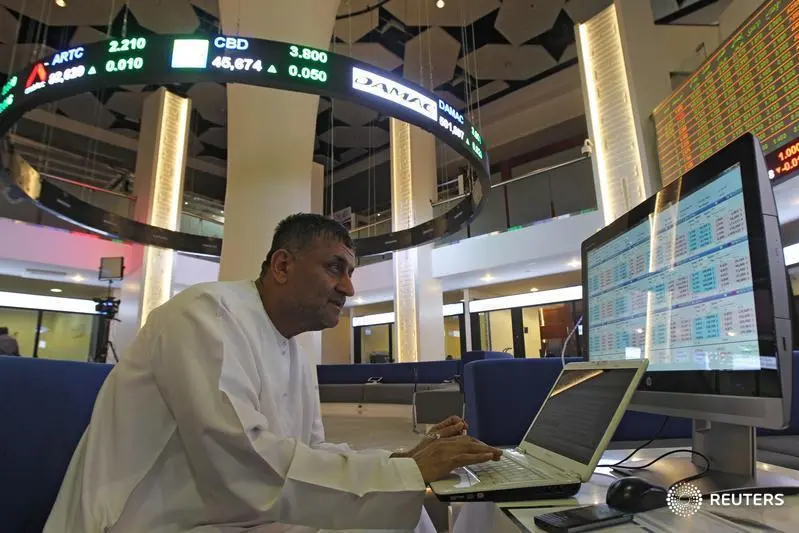PHOTO
DUBAI- Dubai's $2 billion dual-tranche bond sale on Wednesday was backed mostly by funds in the Middle East, Europe and the United Kingdom, a document showed, while the emirate's lack of a rating may have contributed to Asian investors shying away.
It was Dubai's first foray into the public debt markets since 2014, as the Middle Eastern tourism and commerce hub seeks to bolster finances hurt by the COVID-19 pandemic.
The debt sale comprised a $1 billion tranche of 10-year sukuk, or Islamic bonds, at 2.763% and a $1 billion tranche of 30-year conventional bonds at 4%. Fund managers said on Wednesday the Dubai deal was priced attractively for the emirate.
The bonds were trading up following the issuance, said Doug Bitcon, head of credit strategies at Rasmala Investment Bank.
"At current levels, the longer end of the unrated Dubai curve looks attractive relative to the Baa2/BBB rated Sharjah curve. This is evident in the yield on the new 30-year Dubai government issue which is trading just below 4% versus around 3.5% for the 30-year Sharjah government bond," Bitcon said.
Dubai's Department of Finance (DoF) said the bonds were issued at the lowest interest rate ever for Dubai bonds.
"This is a strong indicator of the efficiency of government financial solvency and the continued high investor confidence in the financial landscape of the Dubai government at the global level," DoF Director General Abdulrahman Saleh Al Saleh said in a statement.
Fund managers took a majority of the sukuk, buying 52%, while banks and private banks (PBs) took 44%, according to a document from one of the banks leading the deal seen by Reuters.
Investors from the Middle East were the biggest buyers of the sukuk, which attracted $6.6 billion in orders, taking 48%. UK and other European investors got just over a quarter, Asian buyers bought 16% and offshore U.S. investors took 10%.
Abdul Kadir Hussain, head of fixed income asset management at Arqaam Capital, said fund managers taking more than half the sukuk was encouraging for the overall sukuk market.
Fund managers dominated the conventional tranche too, taking 78%, while banks and private banks got 17%.
Half of the investors in the 30-year bonds, which received $3.4 billion in demand, were from the UK and Europe. Offshore U.S. investors took 21%, Middle Eastern buyers bought 16% and Asian investors accounted for 13% of the bond distribution.
"The lack of a rating may have been a factor in lower Asian participation," Hussain said.
(Reporting by Yousef Saba; Editing by Mark Potter) ((Yousef.Saba@thomsonreuters.com; +971562166204))





















